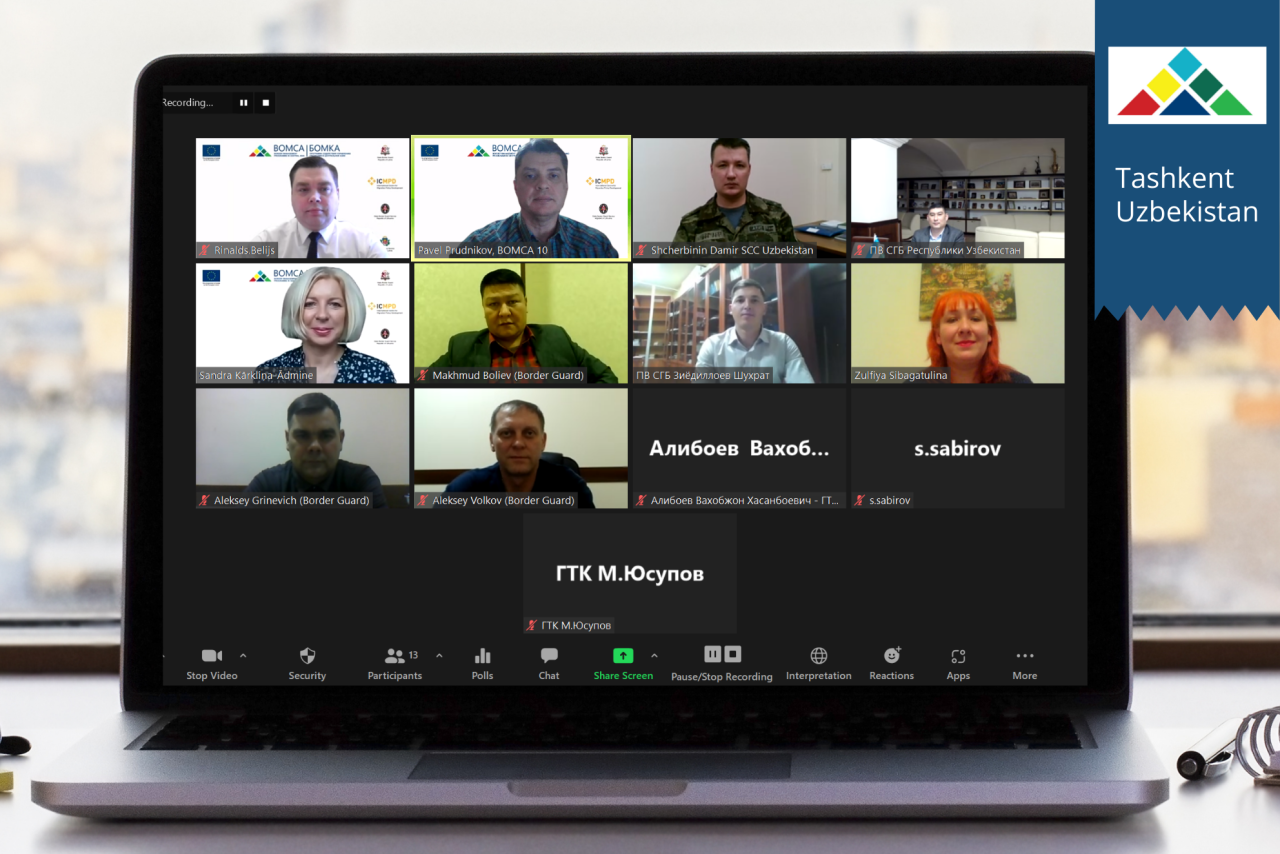From January 17 till 19, 2021, the Border Management Programme in Central Asia (BOMCA) held an online workshop in Tashkent on the delegation of functions between the Border Guard and Customs Services of the Republic of Uzbekistan. The workshop was attended by officials of the national border guard and customs agencies, responsible for the organization, coordination and control of procedures at the border crossing points.
The workshop aimed to assist in enhancing cooperation between the border guard and customs services and optimizing border and customs control procedures at checkpoints across the Republic of Uzbekistan. During the workshop, various models and forms of delegating functions, based on the European Union good practices, were presented and recommendations were offered on the most optimal means for the monitoring of people, vehicles, and goods passing the border . Also, solutions were proposed for the adaptation of technological schemes at road border checkpoints and cooperation plans for implementing inspections, which will improve the efficiency of border guard and customs controls.
The expertise during the workshop was delivered by the following representatives from the participating European Union Member State (Latvia): the Head of the Border Checks and Immigration Control Department of the State Border Guard of the Republic of Latvia; and the Deputy Director of the Customs Board of the State Revenue Service of the Republic of Latvia.
At the end of the three-day workshop, recommendations were elaborated on the introduction of the principle of delegation of functions, between the Border Service and the Customs Service of the Republic of Uzbekistan. These recommended actions cover legal and practical cooperation; human resources management; and adapting infrastructure, which shall help to optimize control procedures and speed up the flow of individuals and vehicles across the state border.

